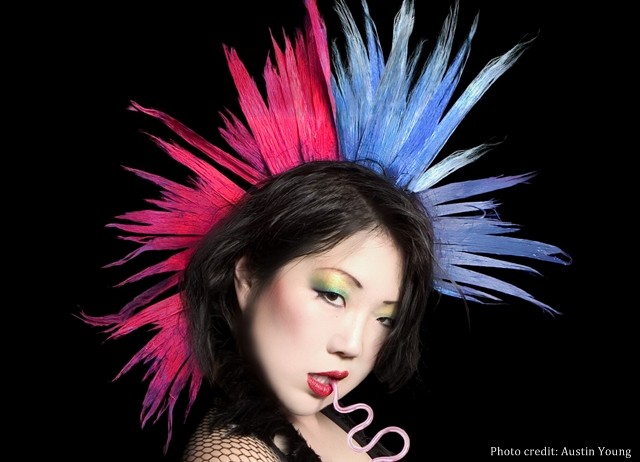By Jae-Ha Kim
Chicago Sun-Times
August 11, 2000
![]()
Taussig/Cho Productions presents a film directed by Lionel Coleman.
Written by Margaret Cho. Running time: 96 minutes.
No MPAA rating (contains language inappropriate for minors). Opening today at Landmark Century.
At the end of “I’m the One That I Want,” Margaret Cho declares, “I’m gonna stay here and rock the mike until the next Korean-American, fag hag, shit starter, girl comic, trash talker comes up and takes my place!”
Any takers?
This film version of Cho’s savagely funny one-woman show is true to the tour she took on the road last year. Shot over two nights in her native San Francisco, the movie captures the raw energy of her act and presents the comic actress as a likable, whip-smart talent with a strong will to survive.
Once a rising star with her own ABC sitcom, “All-American Girl,” Cho learned that fame had its drawbacks. Though she was hired for her irreverent, Gen X, raunchy humor, the producers decided that they needed to mainstream her words as well as her looks.
During her one-year stint on the series, Cho–now 31–would be ordered to lose weight, be more Asian, stop wearing miniskirts, do something about her “full” face and maybe, come to think of it, stop being so darned Asian.
She wasn’t your stereotypical, demure Asian beauty. As she notes, “I didn’t play the violin, and I didn’t fuck Woody Allen.”
But not wanting to disappoint her bosses, Cho dieted down to a size 4 by losing 30 pounds in two weeks. The stunt landed her in the hospital, where she was diagnosed with kidney failure. When she came to, Cho was faced with a nurse who introduced herself by saying, “Hi, my name is Gwen and I’m here to shave your vagina.” To add insult to injury, Cho’s boyfriend broke up with her the same day.
When “All-American Girl” was canceled, her former manager began pimping her out to producers who wanted to have “meetings” at hotels. Relaying this story, there is pathos in Cho’s eyes, even as she draws laughs from the appreciative audience.
At first, I wondered why the director of photography didn’t shoot Cho from more flattering angles. The images Lionel Coleman creates are more akin to those found in a home movie than even an indie film. But then I realized the beauty in his presentation. By downplaying Cho’s looks, Coleman presents the comic actress as who she is, rather than who she is supposed to be.
Just who Cho has become is as fascinating as the tales she spins. She is a straight woman who dabbled in lesbianism before realizing that she was just a “slut.” She is a self-acknowledged “fag hag” who prayed as a child that she would be surrounded by beautiful men (“I should’ve been more specific,” Cho slyly says). She is a child of immigrant parents who, with age, realizes she has more in common with them than she cared to believe.
Cho’s bits about her mother are some of the most anticipated moments in her show. And the comic delivers, with dead-on imitations of her mother’s halting English, unintentionally funny phone messages and, more often than not, sage advice.
Cho has said that her parents had never seen her perform onstage. At the beginning of the film, the camera pans briefly to the elder Chos standing proudly outside the theater at which their daughter was scheduled to perform. But there are no reaction shots of them, much less any comments about the show.
This omission is the one part of the film that rings untrue. Because you just know that Mrs. Cho has an opinion. It’s too bad the filmmakers chose not to share it.
